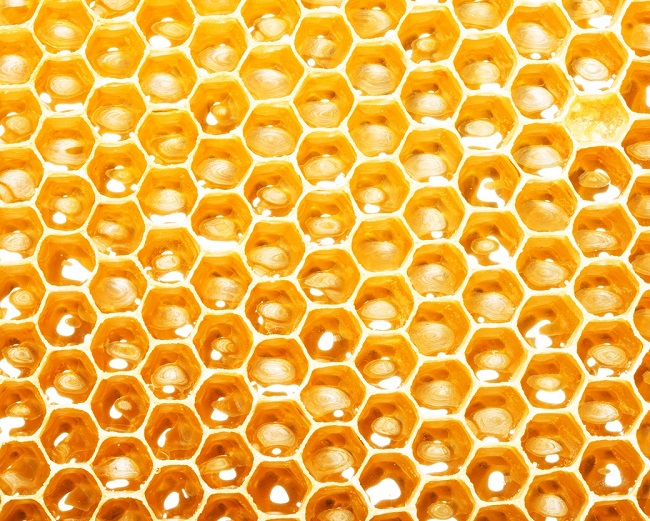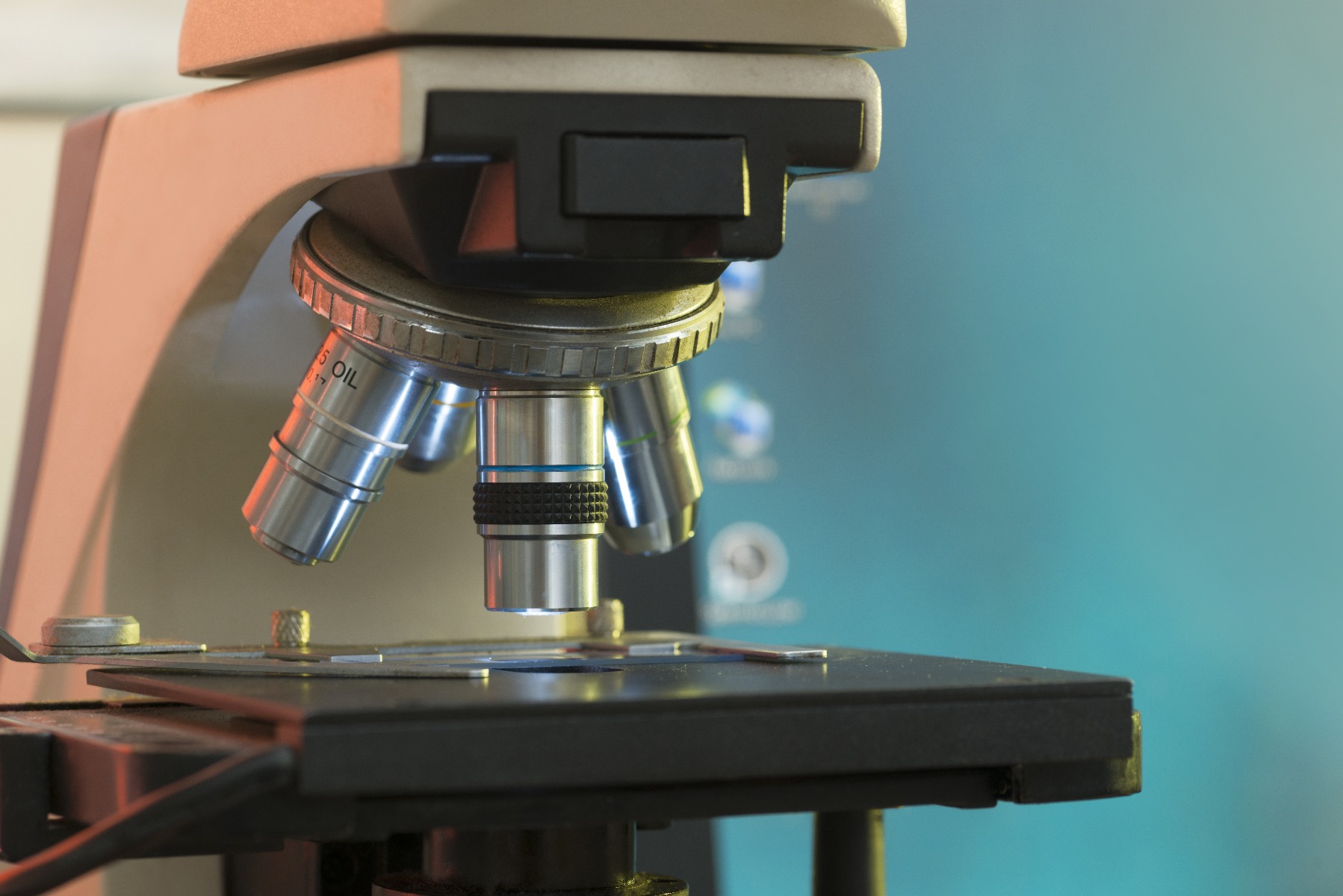
Visit our other sites
-
Fapas - Proficiency Testing
Globally recognised provider of proficiency tests, running over 400 tests annually across an extensive range of matrices and analytes
-
Great Crested Newts Testing
A single sample taken by an ecologist at any time during the newt breeding season can determine their presence or absence, saving you time and money
- Our focus in recent times has been to turn scientific excellence into economic impact and deliver results through innovation, in collaboration with the public and private research community and governments.
- Contact Us

This we have done by investing in high-potential European Union (EU) research and innovation projects as part of our science strategy, focusing on the priority areas we have identified; Crop Health, Next Generation Diagnostics, Food Integrity and Sustainable Agri-food Systems. This has enabled us to advance current knowledge and build momentum to focus on product innovation and improved services.
-
Number of EU Projects collaborating on
13
-
Key topics
Food Authenticity & Food Fraud
-
Total number of collaborative partners
310
Key topics
Crop Protection & Big Data
EU Projects
Listed below are projects that have either been supported by the European Commission through the Seventh Framework Programme (FP7) or has received funding from the European Union’s Horizon 2020 research and innovation programme. Fera Science Limited either coordinates or is a partner in the project consortium.
Valitest
Fera, as part of a multi-disciplinary consortium of 16 European organisations partnering on the Valitest project, provides scientific expertise for the validation of diagnostic tests to support plant health. Despite current protection practices, pests are responsible for significant pre-harvest crop losses worldwide - losses which will likely be exacerbated in future, through climate change, growing pest resistance and tighter restrictions on conventional controls. Increasing focus is therefore placed on early diagnosis and rapid response to reduce the risk of entry and spread of plant pests. In order to take action, pests need to be accurately identified to an appropriate level of confidence and within a timeframe which reduces impacts on trade.
As part of Fera’s commitment to protect food production and the natural environment, we are working with a multi-disciplinary, European consortium to:·
- Provide more complete and precise descriptions of the performance of diagnostic tests.
- Stimulate, optimize and strengthen the interactions between stakeholders in Plant Health for better diagnostics.
- Lay the foundations for structuring the quality and the commercial offers for plant health diagnostics tools.

FOODINTEGRITY - FP7 Coordinator
Comprising of 60 participants from 18 European countries, China and Argentina, FoodIntegrity’ s key focus is to consolidate, harmonise and mobilise the European capability on food authentication in order to ensure consumer confidence and protect European added value. The 5 year (2014-2018) €12M project has aimed to reduce the current barriers to data sharing and utilisation, that are crucial to combating food fraud, by supplying methods and tools that will address both enforcement and industry needs. The project pursued to enhance early warning capabilities, by working with industry, and has developed methods, systems and processes that will assure the quality, authenticity and safety of the food chain.
DROPSA - FP7 Coordinator
This project is about sustainable & effective solutions to control new pests and pathogens for fruit production. Fruit crops account for 17% of the value of the EU's agricultural production and the fruit and vegetables supply chain has an estimated turnover of more than €120 billion with over 550,000 employees and around 1.4 million growers. It is estimated that insect pests destroy approximately 14% of all potential food production globally. Therefore it is reasonable to estimate that fruit losses from pests and pathogens accounts for over €10 billion in revenue and 3 million tonnes of produce to the EU fruit industry.
Why not watch the Dropsa Animation
AUTHENT-NET H2020 Coordinator
It is acknowledged that historically anti-food fraud capability within Europe has not been consolidated and lacks the coordination and support structures available to those working in food safety. There are various initiatives underway to redress this balance e.g. DG Santé’s Food Fraud network, DG Research’s Food Integrity project, as well as numerous national programmes and industry initiatives. One pivotal area that still needs to be addressed is bringing together national research funding bodies to facilitate the development of transnational research programmes. AUTHENT-NET will address this need by mobilising and coordinating relevant research budget holders in order to facilitate the eventual development of a transnational European funding vehicle that will allow Members States (MS) to jointly fund anti-fraud research. Authent-Net comprises a core group of 19 participants from 10 MS, 1 NGO (non-government organisation) and the US, who are either national research funding bodies; experts in food authenticity, and/or experts in transnational funding mechanisms.

HEALS-FP7 Partner
The general objective of HEALS is the refinement of an integrated methodology and the application of the corresponding analytical and computational tools for performing environment-wide association studies in support of EU-wide environment and health assessments. The exposome represents the totality of exposures from conception onwards, simultaneously identifying, characterizing and quantifying the exogenous and endogenous exposures and modifiable risk factors that predispose to and predict diseases throughout a person’s life span. The HEALS approach brings together and organises environmental, socio-economic, exposure, biomarker and health effect data; in addition, it includes all the procedures and computational sequences necessary for applying advanced bioinformatics coupling thus effective data mining, biological and exposure modeling so as to ensure that environmental exposure-health associations are studied comprehensively.

SMARTBEES FP7 Partner
Global apiculture is facing an unprecedented crisis of increasing parasite pressure and a loss of honeybee biodiversity. SMARTBEES unites a team of experts with the necessary skills to build a bright and sustainable future. Crucial facets of honeybee resistance to colony losses, Varroa and viruses will be identified providing a step-change in the current mechanistic understanding of these traits, the genetic background of the resistance mechanisms in honeybees will be characterised. We will develop breeding strategies to increase the frequencies of these valuable traits in local honeybee populations, considering the variable need of both common and endangered subspecies and local beekeeping practices.
Breeding efforts concentrating on very few races may endanger genetic diversity, to avoid this SMARTBEES will promote multiple local breeding efforts, to conserve local resilient populations and will develop molecular tools for describing and safeguarding future populations. SMARTBEES recognizes responsibility to protect our natural honeybee heritage. SMARTBEES is an opportunity to make a lasting difference to the health, resilience and genetic diversity of our honeybees.
CBRN GIFT FP7 Partner
Forensic investigation is a key component in the fight against crime and the protection of EU societies. At present it is hampered by a lack of protocols and training in carrying out forensic analysis on CBRN (chemical, biological, radiological and nuclear) contaminated materials. The aim of GIFT-CBRN is to develop a forensic tool box for investigating CBRN incidents. This tool box would provide
(1) procedures, sampling methods and detection of CBRN agents at the crime scene,
(2) traditional forensic laboratory methods for contaminated evidence and
(3) laboratory methods for profiling the CBRN agents released at the incident.
The procedures and methods are will be set up and validated according to ISO17025 and the system validation will be performed by a final exercise. Procedures for chain of custody, QC (quality control) to ensure the integrity of the evidence and investigations done on the evidence from crime scene to court will be developed. An education and training curriculum related to the developed procedures, best practices and methods will be designed and progressed to implementation.
Underpinning the above aims, research will be carried out to develop novel methodologies to enable traditional forensic science (DNA, fingerprint and electronic devices) on CBRN contaminated exhibits and analytical procedures to be carried out that not only provide information about the CBRN agent itself but also through CBRN profiling provide in-depth information which can give valuable forensic information, for example points of origin.
The project team includes forensic research laboratories, potential users of the expected developments, including public and private users, and SMEs (small-medium enterprises) who will be able to bring the new technologies developed within the project to market.
EUROMIX H2020 Partner
Euromix aims to develop an experimentally verified, tiered strategy for the risk assessment of mixtures of multiple chemicals derived from multiple sources across different life stages. The project takes account of the gender dimension and balances the risk of chemicals present in foods against the benefits of those foods.
Important concepts for this new strategy are prioritisation criteria for chemicals based on their exposure and hazard characteristics and evaluation of the role of mode of action in grouping chemicals into cumulative assessment groups. The EuroMix project will result in an innovative platform of bioassays for mixture testing and refined categorisation of chemicals in cumulative assessment groups.
New hazard and exposure models will be embedded in a model tool box, made available for stakeholders through an openly accessible web-based platform. It is expected that the new mechanism-based strategy, the bioassay platform, the openly accessible web-based model tool box, and clear guidance on a tiered hazard and exposure test and risk assessment strategy will boost innovation in the public and private sector, provide a sound scientific basis for managing risks to public health from chemical mixtures, ultimately reduce the use of laboratory animals, and support the global discussion of risk assessment policies for mixtures.

EMPHASIS H2020 Partner
EMPHASIS is a participatory research project addressing native and alien pests threats (insect pests, pathogens, weeds) for a range of both natural ecosystems and farming systems (field crops, protected crops, forestry, orchards and amenity plants). The overall goal is to ensure a European food security system and the protection of biodiversity and of ecosystems services while developing integrated mechanisms of response measures (practical solutions) to predict, to prevent and to protect agriculture and forestry systems from native and alien pests threats.
The project is not focused on a single management systems but the plant/pest ecosystems dealt with are treated with a multi-method approach to design true IPM (integrated pest management) methodology that will be developed for key systems with portability to other similar systems, thereby having a large impact.

OLEUM FP7 Partner
The OLEUM project will generate innovative, more effective and harmonized analytical solutions to detect and fight the most common and emerging frauds and to verify the overall quality of olive oils (OOs). By a core group of 20 partners from 15 countries OLEUM will undertake research activities based on the development of improved and new analytical methods by targeted and omics approaches with the aim:
i) to detect new markers of the soft deodorization process;
ii) to discover illegal blends between OOs and other vegetable oils;
iii) to control OO quality (e.g. freshness);
iv) to improve the organoleptic assessment with a Quantitative Panel Test, based on current official methods, and supported by tailored reference materials for better calibration of the sensory panels coupled with rapid screening tools to facilitate the work of the panelists.
The most promising OLEUM solutions will be subjected to validation in conformity with internationally agreed standards by peer laboratories. OLEUM will recreate a realistic “deodorisation scenario” by producing tailored, soft deodorised OOs by lab-scale and up-scaled pilot plants to apply analytical solutions to known samples. Substantial knowledge and technology transfer activities will be envisaged to aid in implementation of:
a) a web-based easily-accessible, scalable and constantly updated OLEUM DATABANK, containing all the information from OLEUM research and other reliable international sources, will be available for download data and spectra and to help achieve satisfactory harmonization of analytical approaches among control laboratories;
b) the OLEUM NETWORK of relevant OOs stakeholders to maximize the impact of proposed analytical solutions.
Finally, a robust dissemination strategy by the OLEUM project aimed at effectively sharing results with all stakeholders in the OO supply chain has the potential to improve consumer and market confidence, and preserve the image of OOs on a global scale.
Read the latest in developments when it comes to authenticity of olive oil:
Read more: EU H2020 OLEUM Project Update
EU CHINA SAFE H2020 Partner
EU-China-Safe will mobilise resources in Europe and China to develop a cohesive partnership that will deliver a shared vision for food safety and authenticity and work towards “mutual recognition”. Comprising 16 participants from the EU and 17 from China, EU-China-Safe contains key research organisations, Government and industry needed to develop and jointly implement major advances in improving food safety and combating food fraud in the two trading blocks. EU-China-Safe will build the core components needed for a joint EU-China food safety control system comprising: control management, food legislation, food inspection, food control laboratories, and food safety and quality information, education and communication. The project will develop an EU-China Joint Laboratory Network that will achieve and demonstrate equivalency of results, and will develop a state of the art virtual laboratory, with interchangeable staff from two continents, that will be used as a “showcase” to communicate and demonstrate best practice. Innovative traceability tools will strengthen the most vulnerable supply chains. New or improved detection capabilities for chemical/microbiological hazards and food fraud will be implemented in a harmonised way across the EU-China network.
Trade barriers caused by food safety and fraud issues will be analysed and recommendations of how to predict and prevent future events disseminated. The project will focus on the most commonly reported foods linked to chemical and microbiological contamination and fraud (infant formula, processed meat, fruits, vegetables, wine, honey, spices). Substantial knowledge transfer and training actions will build high-level and long-term collaboration, synergies and trust between a wide range of EU and China actors. These advances, in addition to a wider range of confidence building measures towards food safety, authenticity and transparency, will address consumer expectations and facilitate an expansion of EU-China trade.
KNOWPEC H2020 Partner
KNOWPEC (Knowledge for Pesticides Control), aims to create a transnational research network between Europe and Latin America focused on the challenge of unwanted pesticides in the environment. KNOWPEC wants to identify the occurrence and fate of banned and toxic pesticides in drinking and natural waters in agricultural areas of Latin America where knowledge on occurrence and risk is scarce. KNOWPEC wants to assess the environmental and potential human risks of the pesticides detected, and to provide solutions for both reducing pollution at source, and remediating contaminated water. Together, KNOWPEC will promote the sharing of knowledge at each step from pesticide analysis, toxicity and risk assessment to advanced treatment technologies that jointly enables the design of sustainable solutions to each pesticide pollution problem. Moreover, we want to create the tools of information and networking for a source of collaboration between European and Latin America institutions under the framework of the environmental and human protection from pesticides.
KNOWPEC will make important contributions increasing the knowledge of pesticide pollution in potable and natural waters in selected Latin America locations providing typical (or exemplary) cases of widespread agricultural practices and ecological regions. This, together with the application of knowledge from a network of experts in chemical analysis, environmental toxicity and risk assessment, and innovative water treatment technologies in training future specialists, will contribute to safeguarding drinking water supplies and providing solutions for sustainable food production, and a sustainable environment.

NA-TOX-AQ 7 H2020 Partner
Clean drinking water is crucial to human health and well being. The ambition of the NaToxAq ETN network is to expand the research basis for EU’s leading role in securing high quality drinking waters for its citizens. Focus is on natural toxins – a large group of emerging contaminants with unknown impact on drinking water resources. Both known toxins, like cyanotoxins, cyanogenic glucosides and terpenes and not yet explored toxins will be investigated. Twenty leading universities, research institutions, and water enterprises will pioneer the field through joint training of 15 ESRs (early stage researchers) investigating natural toxin emission via water reservoirs to water works and consumers. The natural toxin challenge is addressed by the concerted work of the ESRs within 4 scientific work packages comprising origin, distribution, fate and remediation. Priority toxins are selected using in silico approaches accompanied by novel non-targeted and targeted analyses to map natural toxins along vegetation and climatic gradients in Europe. Invasion of alien species, toxin emission, leaching and dissipation will be under strong influence of climate change. Data collected for toxin emission, properties and fate will be used to model effects of climate, land use, and design of remediation actions. Special attention will be paid to toxin removal at water works including development of new technologies tailored to remove natural toxins. The results will contribute to strengthening of European policies and regulation of drinking water, while new business opportunities within the fields of water supply and treatment, chemical monitoring and sensing, and the consulting sector will arise from academia-industry collaborations. The urgency of the challenge, its eminent knowledge gaps, its multifaceted and multidisciplinary nature, and the need for scientific and public awareness to be communicated by ESRs in a balanced way makes the topic ideal for a European mobility and training network.

Copyright © 2025 Fera Science Limited (“Fera”). All rights reserved.
For further information about how Fera uses any personal data collected from you, please see our Privacy Notice at www.fera.co.uk/privacy-policy.



